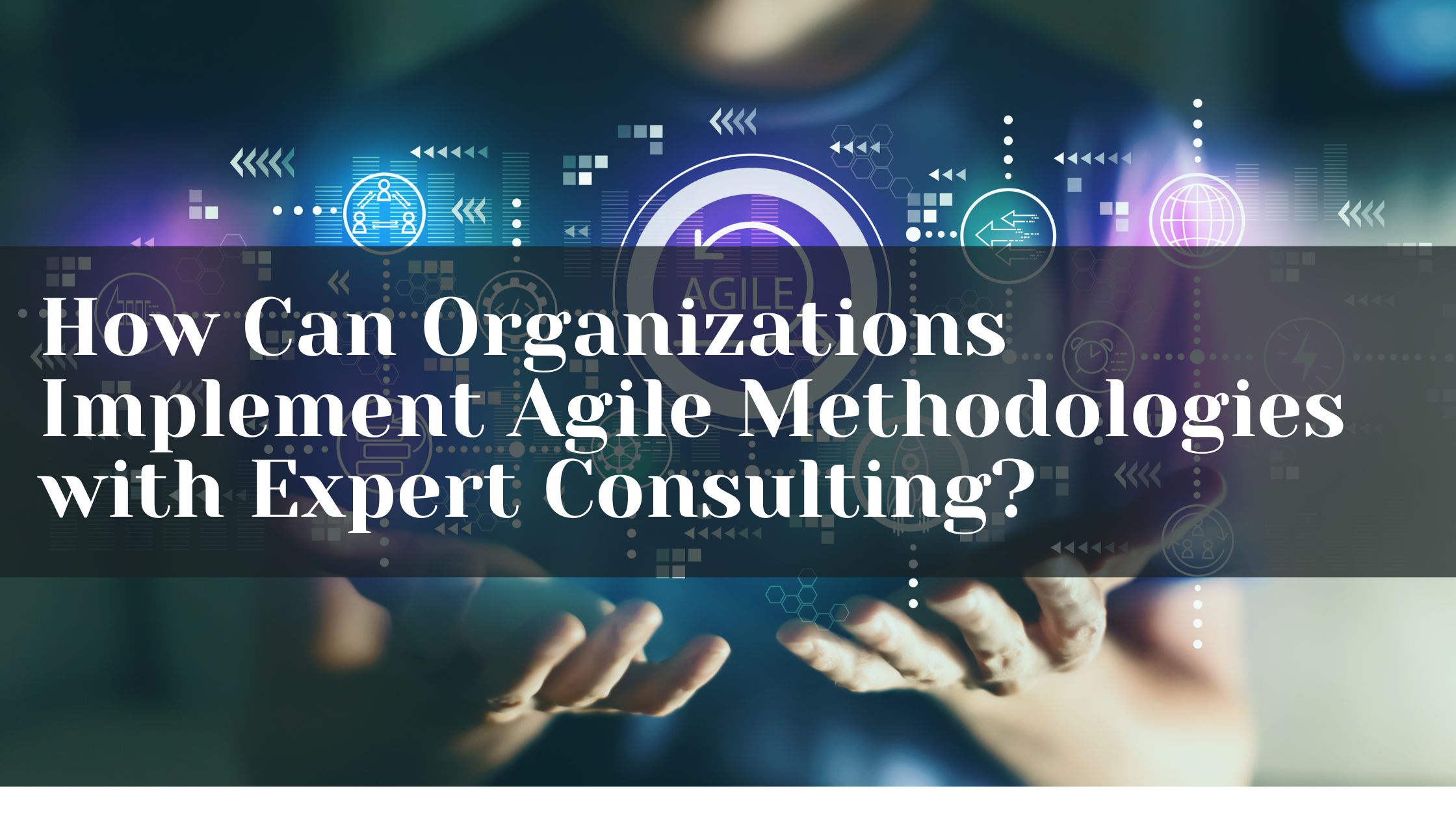
How Can Organizations Implement Agile Methodologies with Expert Consulting?
The software development industry has witnessed a spike in the popularity of agile consulting. This has revolutionized traditional project management techniques. Businesses look for agile knowledge to improve responsiveness, flexibility, and teamwork.
Additionally, teams are guided by agile consultants to embrace iterative development, prioritize customer feedback, and cultivate a continuous improvement culture. This process lowers risks, encourages faster delivery, and adapts to changing needs.
Agile software development consulting helps businesses effectively manage changing market dynamics by emphasizing communication and adaptability. Moreover, such consultants are essential to streamline software development processes for increased innovation and customer satisfaction.
Implementation of Agile Methodologies with Expert Consulting
Implementing Agile methodologies with expert consulting involves a strategic and collaborative approach. Here are detailed steps for organizations to follow:
1. Assessment and Training:
· Conduct a thorough assessment of the current development processes.
· Identify the need for Agile transformation.
· Provide comprehensive training for teams on Agile principles, practices, and frameworks.
2. Create Agile Teams:
· Form cross-functional teams with members possessing diverse skills.
· Appoint a Scrum Master or Agile coach to guide teams through the process.
3. Define Clear Objectives:
· Establish well-defined project goals and objectives.
· Prioritize features and functionalities based on business value.
4. Select Appropriate Agile Framework:
· Choose a suitable Agile framework (e.g., Scrum, Kanban, or a hybrid approach).
· Tailor the framework to fit the organization’s specific needs.
5. Implement Iterative Development:
· Break projects into small, manageable tasks i.e., iterations or sprints.
· Ensure each iteration results in a potentially shippable product increment.
6. Encourage Collaboration and Communication:
· Develop an environment of open communication and collaboration.
· Utilize tools and practices that facilitate real-time collaboration among team members.
7. Continuous Integration and Deployment:
· Implement continuous integration and deployment practices to streamline the development pipeline.
· Automate testing and deployment processes to enhance efficiency.
8. Adopt Agile Tools:
· Integrate Agile project management tools to enhance visibility and transparency.
· Use tools like Jira, Trello, or Azure DevOps for tracking progress and managing backlogs.
9. Feedback and Retrospectives:
· Incorporate regular feedback loops that include stakeholders and end-users.
· Conduct retrospectives at the end of each iteration to identify areas for improvement.
10. Empower and Support Teams:
· Encourage teams to make decisions and take responsibility and ownership of their work.
· Provide ongoing support and mentorship to help teams overcome challenges.
11. Scale Agile Practices:
· Explore scaling frameworks like SAFe (Scaled Agile Framework) for larger organizations.
· Ensure alignment of Agile practices across various teams and departments.
12. Measure and Adjust:
· Define key performance indicators (KPIs) to measure the success of Agile adoption.
· Regularly assess the effectiveness of Agile practices and adjust them as needed.
13. Continuous Learning:
· Encourage an environment of continuous learning and improvement within the organization.
· Stay updated on industry best practices and incorporate relevant changes.
By following these steps and leveraging agile software development consulting, organizations can navigate the complexities of Agile adoption. This helps in fostering a more adaptive and responsive approach to software development.
Key Benefits of Agile Development Consulting
Agile development consulting offers numerous benefits to organizations aiming to enhance their software development processes. Some key advantages include:
Faster Time-to-Market:
Agile methodologies prioritize iterative development and frequent releases. This allows organizations to deliver functional software increments more quickly, responding rapidly to market demands.
Increased Flexibility and Adaptability:
Agile frameworks, such as Scrum and Kanban, enable teams to adapt to changing requirements and priorities seamlessly. This flexibility is an important factor in dynamic business environments.
Improved Collaboration:
Agile fosters a collaborative culture among cross-functional teams, breaking down silos and enhancing communication. Agile consultants guide teams in effective collaboration, leading to better problem-solving and innovation.
Enhanced Customer Satisfaction:
Agile emphasizes customer feedback and involvement throughout the development process. This results in products that better meet customer expectations and requirements, ultimately leading to higher satisfaction.
Better Risk Management:
Agile allows for continuous monitoring and mitigation of risks through iterative development. Agile consultants help identify and address potential issues early in the development cycle, reducing the likelihood of major setbacks.
Optimized Resource Utilization:
Agile practices, such as prioritized backlogs and iterative planning, help optimize resource allocation. Teams can focus on high-priority tasks, ensuring that efforts align with business objectives.
Continuous Improvement:
Agile encourages regular retrospectives and continuous improvement. Agile consultants facilitate these sessions, helping teams reflect on their processes and identify opportunities for enhancement.
Overall, agile development consulting provides a framework for organizations to improve their software development processes, fostering efficiency, adaptability, and collaboration. These benefits contribute to overall project success and organizational resilience in a rapidly changing business landscape.
Considerations While Choosing Agile Software Development Consulting Partner
Selecting the right Agile development consulting partner is crucial for successful implementation. Here are key considerations:
· Expertise:
Evaluate the consulting firm’s experience with Agile methodologies, frameworks, and relevant technologies.
· Industry Knowledge:
Look for consultants with experience in your industry, understanding specific challenges and compliance requirements.
· References and Case Studies:
Request and review references and case studies to gauge the consulting firm’s past successes and client satisfaction.
· Collaboration Skills:
Ensure the consultants prioritize collaboration and have a track record of fostering positive team dynamics.
· Training and Support:
Check if the consulting firm provides comprehensive training for teams and ongoing support during the Agile adoption process.
· Adaptability:
Choose consultants who can tailor Agile practices to fit your organization’s unique needs rather than adopting a one-size-fits-all approach.
· Communication Skills:
Strong communication skills are essential. Consultants should effectively convey Agile principles and practices to all team members.
Businesses might get paralyzed due to the plethora of choices in terms of agile software development services. However, by carefully assessing these considerations, organizations can select an Agile software development consulting partner that aligns with their goals.


